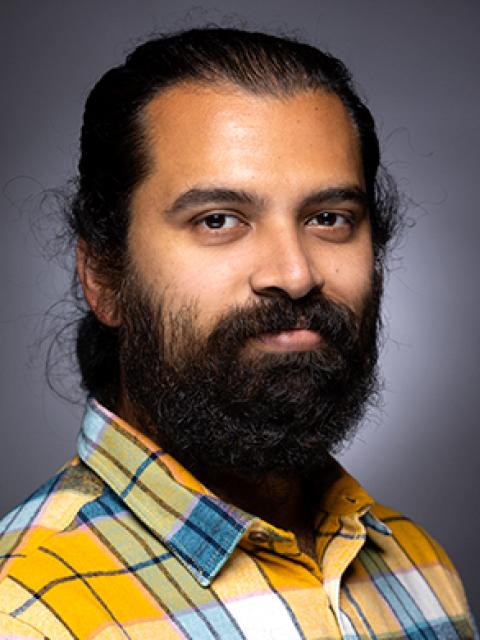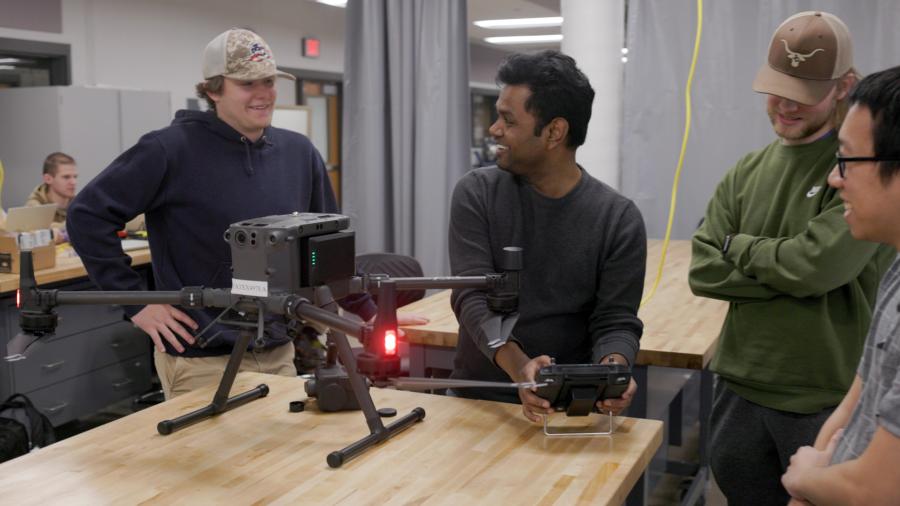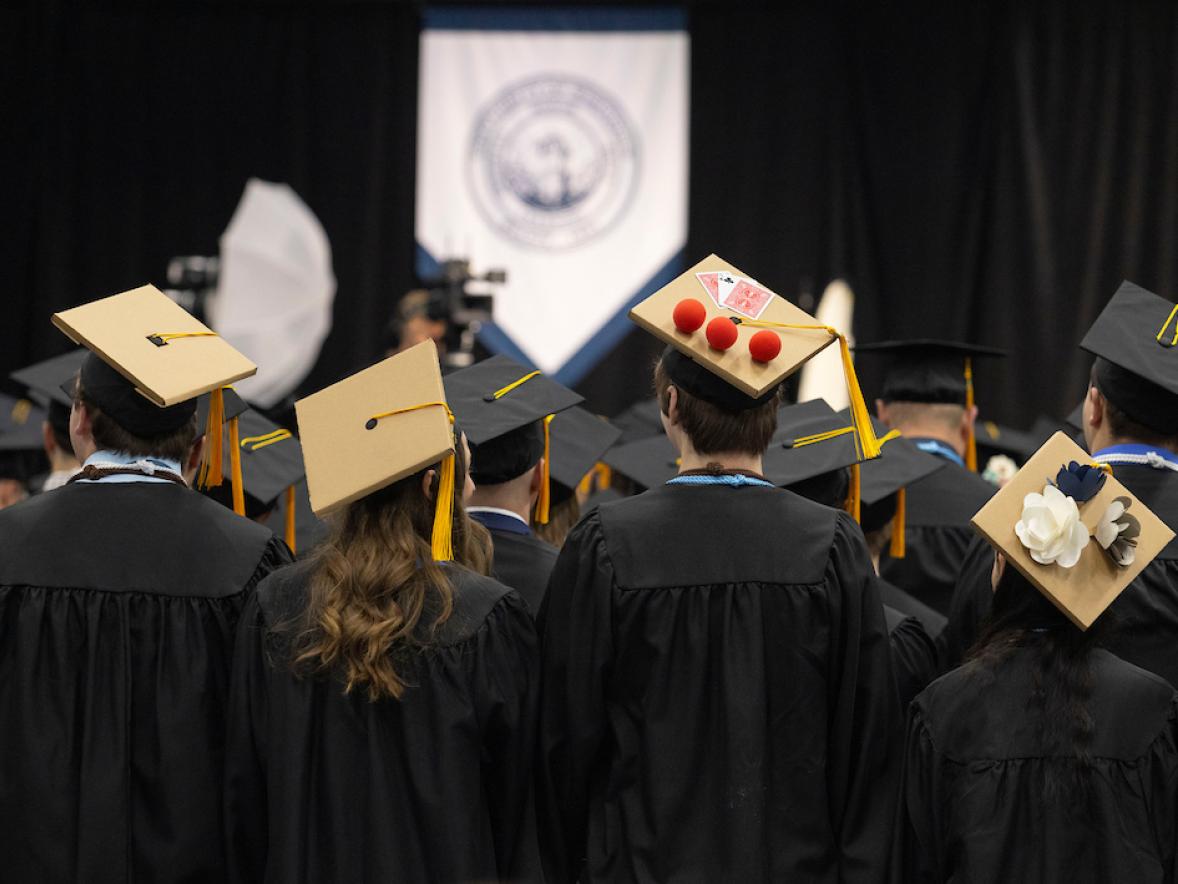Run-off pollution from agriculture and other sources, causing contamination in waterways and lakes, has been a problem for decades in northwestern Wisconsin, harming water quality and quality of life.
Researchers and students at University of Wisconsin-Stout, located in the impacted Red Cedar River watershed, plan to put a high-tech eye in the sky this summer with the hope of developing a new tool to help stop and divert contaminants before they reach streams, rivers and lakes in the region.
A project that will use commercial drones, special cameras and software recently received a $117,000 grant from the Freshwater Collaborative of Wisconsin.

Assistant professors Abhi Ghosh, Abhi Verma and Yuan Xing from the engineering technology department and Robert F. Cervenka School of Engineering and six students will fly drones over preapproved area farms. Attached to the drones will be hyperspectral cameras.
The cameras take highly sensitive color images across the visible and infra-red spectrum with high resolution, thus indicating presence of chemical elements not directly visible to the naked eye.
“A survey of an area will help us understand the water drainage patterns, not just surface patterns but subsurface drainage,” Ghosh said, or in other words a way to predict the problem and be proactive.
Data from the drones will be processed using image-processing software. Then, the flow is simulated in computer software to validate the data.

Once data is compiled, a farming association, lake association, community or the Department of Natural Resources could use the process created by UW-Stout’s engineering students and apply all three steps in an integrated action.
The images also can indicate crop health and help farmers make informed decisions on more sustainable use of pesticides.
“The value comes from looking at it as a whole perspective. There are a lot of applications on a communitywide basis. Landowners wouldn’t have to hire researchers or a team of people. They could buy software, and we’d have the data in front of them to help make a decision,” Ghosh said.

Hyperspectral imaging using drones, image processing and fluid simulation all have been done previously by researchers, but “we’re trying to get all of this into a single process. Now, there’s enough commercial software to sew up these pieces,” he said.
Students will be trained to fly drones and earn a Remote Pilot Certificate before data collection begins in late summer and early fall. Professors will hire three students with research experience. Three other students, juniors or younger from traditionally underrepresented populations in STEM, also will be hired to help them gain undergraduate research experience.
The project provides students a chance to “work on topics of sustainability and freshwater contamination and provide an avenue for engineers to explore their interest in freshwater engineering and bolster Wisconsin’s freshwater workforce,” Ghosh said.
After the project wraps up, students and professors plan to pursue opportunities in 2023 to present the research to scholarly organizations and community groups, such as the local Red Cedar Watershed Conference, and support efforts to put the findings into action.
###





